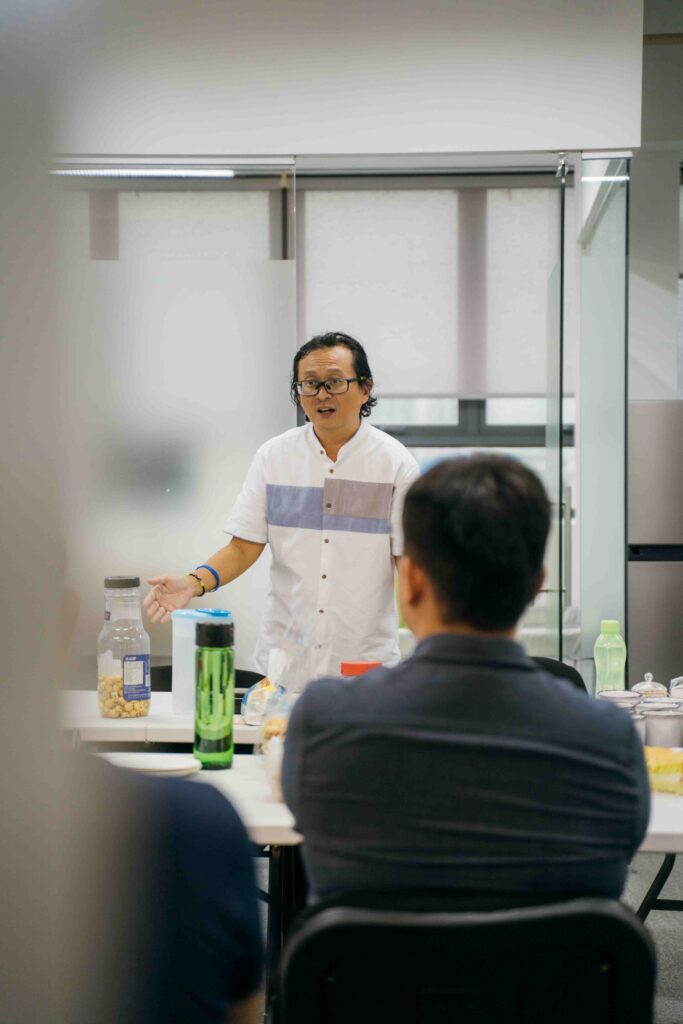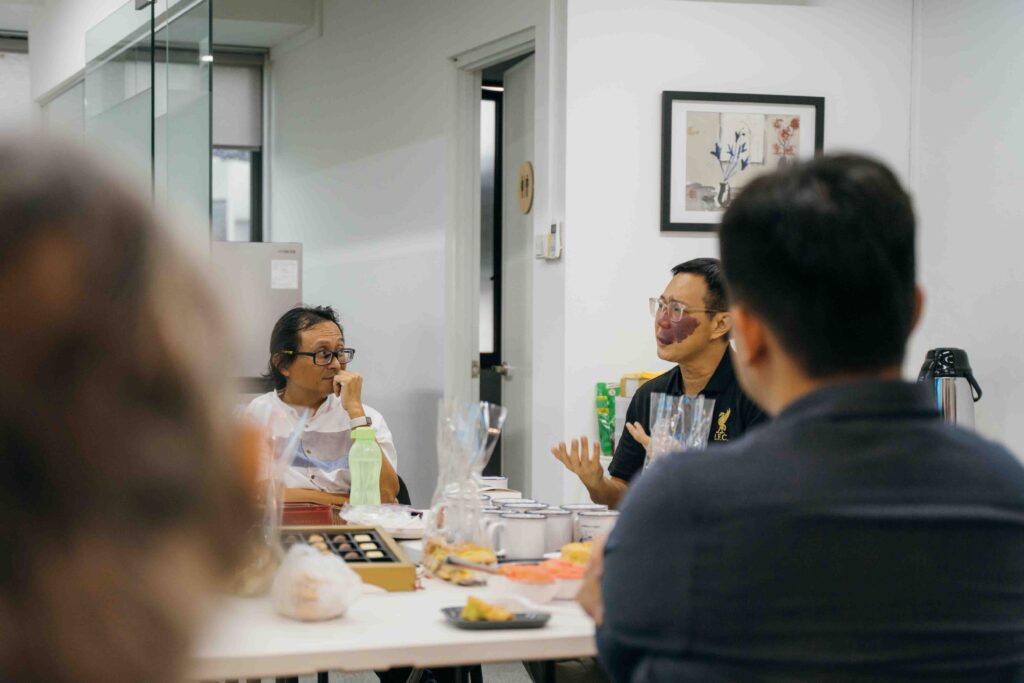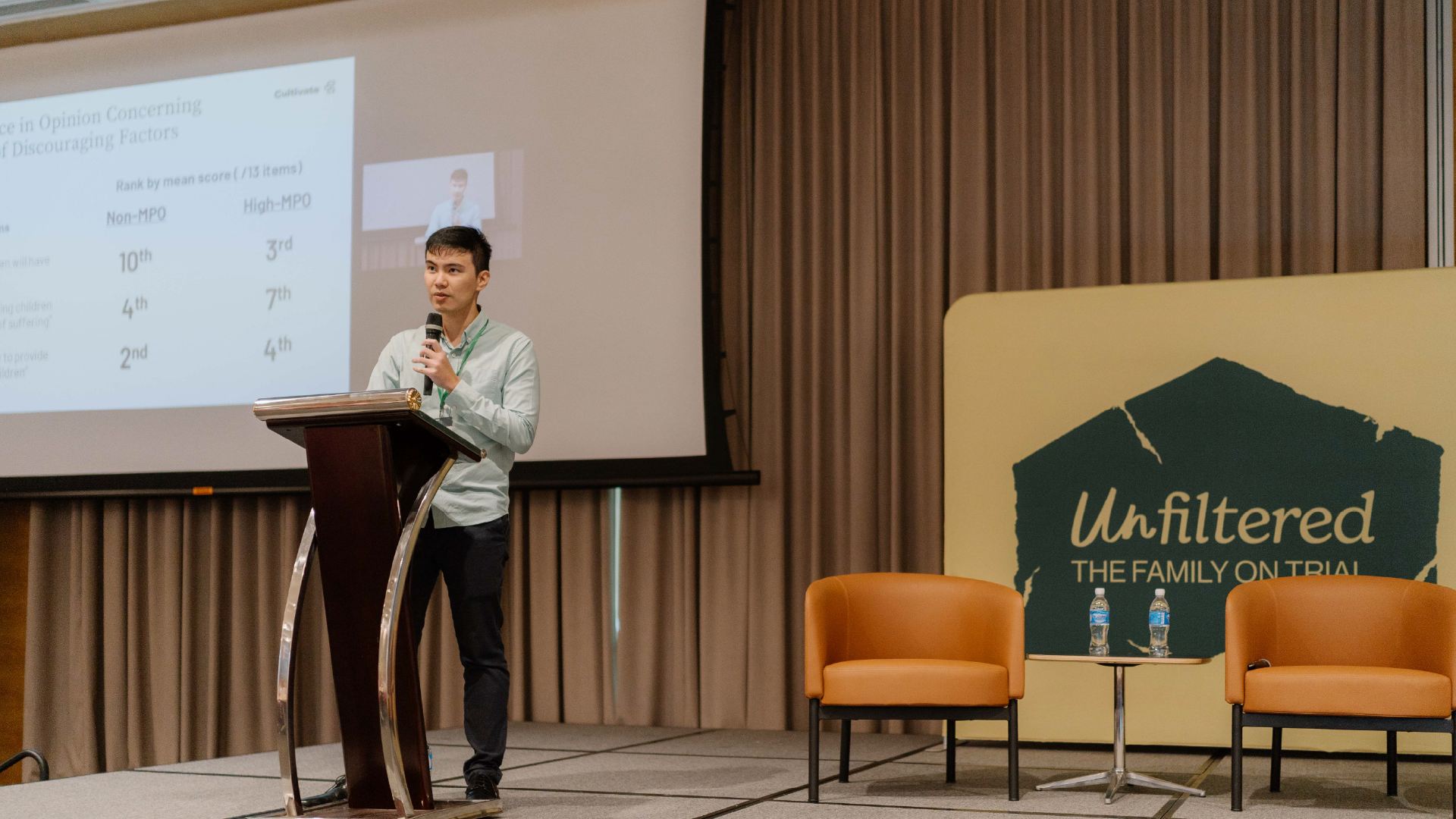Our first Cultivate Commune – a breakfast conversation where we explore how big ideas are planted in real community experiences – kicked off on Friday, 12 April 2024. We saw two stay-home fathers anchoring an insightful discussion over various topics centred around parenting and children – their different stay-home experiences compared with mothers, the tensions between male identity and childcare, the way community is built and grown, and the eternal societal struggle between economic goals and fertility rates.
Our guests, Kelvin and Tim from “The Ordinary Dad,” their community for stay-home fathers, challenged many assumptions of what stay-home fathers did, especially the idea that they were exactly the same – in role and function – as stay home mothers, except that they are male. They also shared about how the idea of “staying home” had shifted, with many having different variants of work arrangements.

Starting with his own example of how he decided to stay home and take care of his son with special needs, Kelvin expressed how stay-home parents in general, and fathers especially, experience a real loss of community and social interactions with their colleagues after leaving the workplace.
There is also a concurrent loss of identity that stay-home parents feel when they no longer have traditional markers of success or achievements to show for the time they spend at home. This especially affects men due to traditional expectations for them to be the main breadwinners in the family.
Nonetheless, the fathers present were pictures of growth.

Tim shared how he came to the end of himself, and how his work achievements were so entwined with his identity, before he decided to stay home to be with his son who was diagnosed with dyslexia.
Another dad also spoke of how his family was making things work with four children and unstable streams of income. Yet another father, whose sixth child is in on the way, shared about how he supported his wife’s decision to stay home despite her earning a higher income.
These were unconventional stories that inspired hope in a landscape of economic anxiety where children are largely seen as monetary liabilities.
Two grandmothers were present – speaking to the reality of the village that raises the children and the parents. One of them, born in pre-prosperous Singapore, moved the group with her stories of her own counter-cultural father, a man who bucked the “Asian dad” trope, and was deeply involved in the raising of his nine children. He had prepared breakfast for them each morning, shouldered the caregiving duties when he was home and on the weekends, providing them – and their friends – with an unforgettable and largely uncommon privilege of a present father.
As stories were exchanged around the breakfast table from over a dozen people, the “big” issues began to surface – such as how the overemphasis on external standards like grades or even GDP (Gross Domestic Product) could not co-exist with a culture which prioritises the unseen and unheard experiences of childcare or giftings that did not fit into traditional metrics. Others observed the struggle between demands of a high-impact profession in a VUCA (volatile, uncertain, complex, and ambiguous) world and the raising of a family with both father and mother present.

We also mulled over the anxieties of modern parenting, marked by a great fear of failure often accompanied with a perfectionist mindset, that led to dwindling family sizes. According to this idea: “The less the children, the more resources they have.” But we questioned if that should be the prevailing mindset, or if there were other valid countervailing considerations, such as purely enjoying having children, benefits of larger family sizes, and perhaps even less narcissism all around.
These conversations were thought-provoking to all who were present, including those who were single or had yet to have kids. It sparked off other streams of dialogues, especially on the worth of children – whether the stay-home experience was “worth it”, the differences between fathers and mothers, and the joys and struggles of larger families (which we hope to explore further at our next Commune). Till then.



